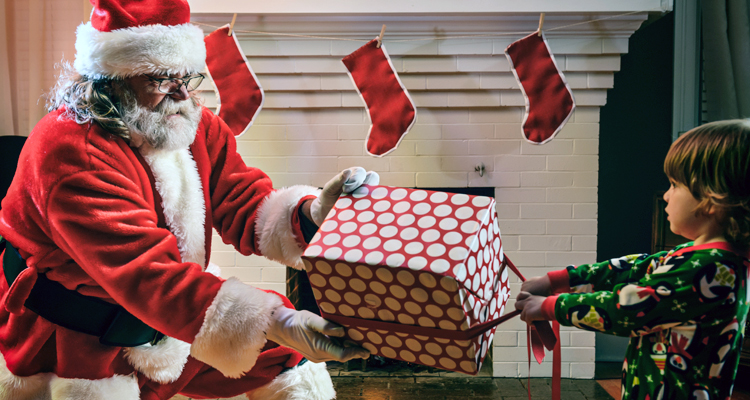Writing letters to Santa, sitting on his lap asking for presents, making wish lists—it’s easy to see how some kids get the idea that they deserve to receive whatever they want during the holidays (and get upset when they don’t). Otherwise selfless and caring children can find themselves drowning in the commercial consumerism of the holiday season, leaving them acting like a spoiled brat. This gift-centered time of year has the ability to bring out the spoiled brat in all of us, though, not just the kids.
Armed with this awareness, we must be intentional as parents to not get caught up in all this ourselves and to teach our children that there is a bigger world out there than getting the latest toy or gadget.
Psychologists and other experts disagree on whether or not we are born inherently altruistic or selfish, but that doesn’t mean that proactive measures cannot be taken in order to keep your child from acting like a spoiled brat.
Below are a few ways to teach your children the lesson of giving rather than receiving, to limit their sense of entitlement, and to refocus their attention away from presents and toward the gifts in life that truly matter.
Visit Someone Who’s Alone
Unless children have personally experienced it in their family, they may not realize how lonely the holidays can be for those who are shut-in or sick in the hospital. For these people, hearing Christmas carols or receiving a visit can immeasurably brighten their spirits. Many community groups or churches organize Christmas caroling to nursing homes, hospitals, or shut-ins in your neighborhood. Bundle up your kids, have them go along and teach them how a simple hello can brighten someone’s day.
Hopefully, this activity will help them learn that good health and friendships are far more valuable than wrapped gifts under the tree.
Give to Others
Children may not understand that there are those in their community, even in their school, who may not be getting anything during the holidays. There are those who don’t have coats, who don’t have enough food, who need a warm pair of shoes—the needs are great, and children are not too young to make a difference.
There are numerous organizations, especially around the holidays, that coordinate gifting to either local families in need or children around the world. Connecting with one of these charities and having your children shop for them, instead of for themselves, will help open their eyes to how fortunate they are and the importance of helping others.
Another practical way to give to others is to have your children donate to charity one older unused toy for every new gift they receive.
Ask for Letters from Loved Ones
Especially when kids are younger and you are already tripping over all their toys, the last thing they need is something else requiring batteries that they will not remember when they grow up. For younger kids or those who have too much already, request letters from family members instead of toys. Save these letters and have the child read them when they are older. Such letters will prove to be treasured gifts as your children become older, especially if those beloved family members are no longer around.
This again places the focus not on things, but rather on the relationships that truly matter.
Keep Your Wish Lists Short
When having children write their wish lists, and when you are shopping for them, make it a small list. A child should not expect to receive everything they’ve ever wanted. It is absolutely reasonable to limit gifts to a couple of top items, especially when children are often receiving gifts from other relatives and friends, as well.
Keeping these wish lists short will help the child gain appreciation for what they do receive, rather than have the value and significance of each individual gift get lost in the pile of presents.
Teach Your Kids to Show Appreciation
One of the most basic ways you can try to avoid your child acting like a spoiled brat is to teach them to express appreciation. Even if they get the pink bunny suit of epically bad gifts, children should know good manners and how to express thankfulness. Teach them to always say “thank you” before moving on to the next gift, to take turns opening gifts with siblings or other kids, to write thank you notes, and to truly understand the meaning behind “it’s the thought that counts.”
A simple hug and “Thank you, Grandma, I appreciate it!” can go a long way in combating spoiled attitudes. They don’t have to like it, they just have to be thankful for it.
During the hustle and bustle of this time of the year, it’s so easy to lose sight of what is most important. The love of family, the warm comfort of friends, the laughter of little ones—focus on what is important every year, and your children will learn from you how to avoid acting like a spoiled brat.






















































































































